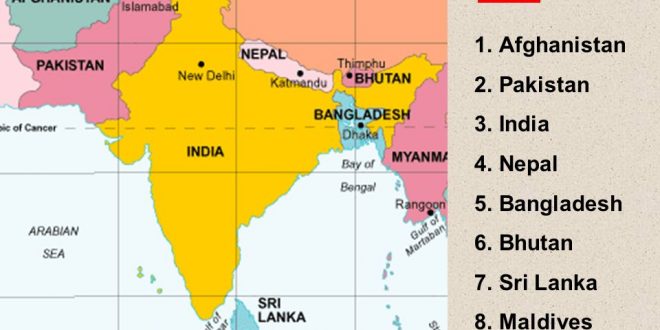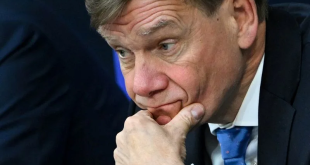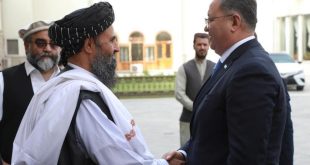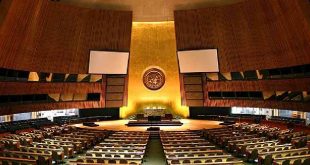After the considerable expansion of Soviet Union up to the borders of Afghanistan, the British Government in India became conscious about its defence and began trying hard to take the ruler of Kashmir at their command for the smooth implementation of their security policy in the region. The British did not want any war with Russia but it’s advancement compelled the British to have a special attention to the question of frontier defence. Incidentally Kashmir came in for their special attention and they took steps to establish a British Residency in Kashmir and Sir Oliver St. John became the first Resident in Kashmir. In the circumstances, Pratap Singh, the new Maharaja came to the throne on September 25, 1885 under the shadow of fear. From the beginning of his rule, Pratap Singh felt suspicious that some intrigue was going on against him. As such, he looked towards the British for support. The British Resident in Kashmir and Raja Amar Singh hatched a conspiracy and Maharaja was told that he had a difficult task before him. Subsequently in 1888, the largest army of Kashmir that any other Indian Chief ever had, was reduced. Further a British Military Adviser was appointed to carryout the re- organisation of the Maharaja’s forces. The basic policy of the British was to bring the forces in every native state under its control and utilise them for furtherance of the Imperial interest.
Administrative reorganisation in the region
The British started the reorganisation of civil administration in 1895 and reorganised all departments by 1903. Complete reorganisation was effected by the British in 1907. As Kashmir had acquired an importance in the context of Anglo–Russian rivalry, the question of developing road communications attracted the foremost attention of the British. It was necessary to have roads to fortify the military position on the frontiers as well as to resist, if necessary, an attack from Russia. It was also considered advisable to connect Gilgit with Srinagar and Rawalpindi. Earlier in 1890, a railway line between Jammu and Sialkot was completed by the British and it was placed under the charge of the North Western Railway. The Banihal cart road between Jammu and Srinagar was built in 1915. With the outbreak of world war 1, the whole of the Kashmir army was mobilised for active service in the Great War and they fought against the Germans in East Africa.
No change in actual status
However, despite meagre developments in transportation, the state of Jammu and Kashmir remained backward largely in education, trade and in everything that could enhance the life of the valley. Figures and data undertaken from time to time showed that though the Hindus form less than seven per cent of the population, they benefited more from the education bestowed by the state. ‘Not only the rulers of Jammu and Kashmir ruined their poor subjects with the burden of heavy taxes and efficient officers,’ they did not care a fig for their education. The wealth which was accumulated by sucking their blood was spent on furnishing the royal palaces, in pursuit of song and luxury and for the serving of the English; and nothing was spent out of it, for education of the subjects. In fact, this heaven had become a hell for its residents. Devoid of education and freedom, they cannot take advantage of natural blessings. The land which appears to be a heaven for outsiders was nothing less than a hell for its residents. However some cosmetic reforms implemented after the Russian Revolution of 1917. Many progressive reforms were carried out and the masses were freed from heavy taxes extortion, and forced labour. Means of communication were improved; agriculture and industry were developed and educational facilities provided for. The administration was overhauled and a beginning was made towards democratic rule. But at this stage the British Government, itself, caught in a dilemma. After the establishment of a Socialistic regime in Russia, a fear psychosis engulfed them and they feared that ‘with the slightest change in the situation the imperialist pirates will again move against us.’
The phase of intensive politics
As the British withdrawal approached, its Government on March 11, 1942 had declared to set up a Constituent Assembly in India after the end of the Second World War to determine India’s Constitution. It made, almost certain, the lapse of British paramountcy over India, including princely states and the State of Jammu and Kashmir. Before the State was acceded to India on October 26, 1947, a section of the people, leadership and the then Maharaja Hari Singh advocated that the state shall remain independent. The Imperial British Government while determining the legal framework for the future political status of the princely states of India had hoped that the larger princely states would remain independent, that the sub continental empire would consist of two dominions – India and Pakistan and that a number of large princely states would constitute the third geopolitical ingredient of the South Asian subcontinent. Their further expectation was that these princely states and Pakistan would sustain close linkages with the British Government. When the majority of the princely states acceded to India, the British plan went awry. The aspiration of Maharaja Hari Singh of Jammu and Kashmir to convert his state into an independent country was sort of a last opportunity which the British Government wished to utilise to strengthen its influence and to create strategic equation with Pakistan to meet this purpose.
Meanwhile, Pakistan jumped the gun with the tribal and military intervention in Jammu and Kashmir resulting in Hari Singh as well as Sheikh Mohammed Abdullah deciding to accede to the Indian union. Both Lord Mountbatten, the then Governor–General of India, and British Prime Minister Clement Atlee were not happy about this development. It was on their advice, and against his own instinct, that Jawaharlal Nehru took the issue to the UN and offered a referendum Plebiscite in that state. Once the matter reached the UN the British converted it into a territorial dispute between India and Pakistan and laid the foundations of international or third-party involvement in Kashmir. The act of the tragic drama, on the eve of country’s independence, was dominated as one author says, by four actors whose characters contained the seeds of tragedy. Maharaja Hari Singh was indecisive; Jinnah impatient; Nehru impulsive and apt to ignore stark realities; and Sheikh Abdullah over- ambitious and prone to fits of megalomania.
The writer is Dr. Rajkumar Singh Professor and Head P.G.Department of Political Science BNMU, West Campus P.G.Centre, Saharsa-852201. Bihar, India. [email protected]
 Afghanistan Times
Afghanistan Times




